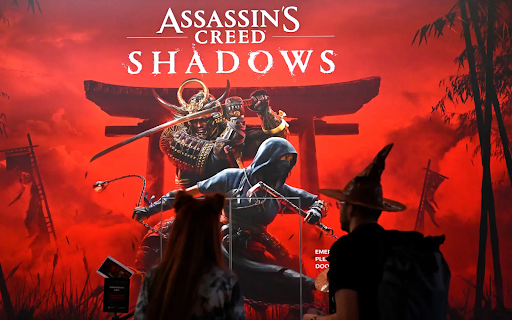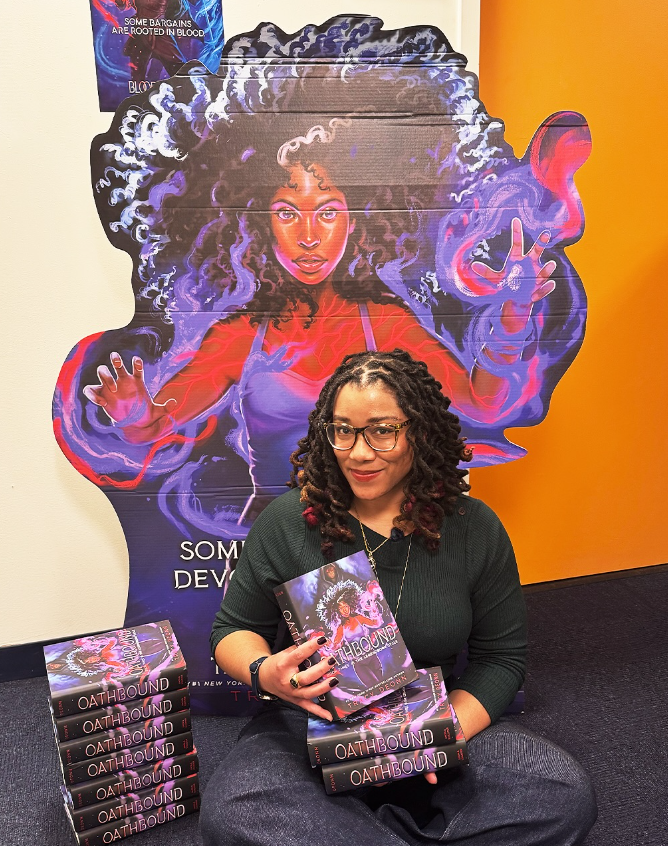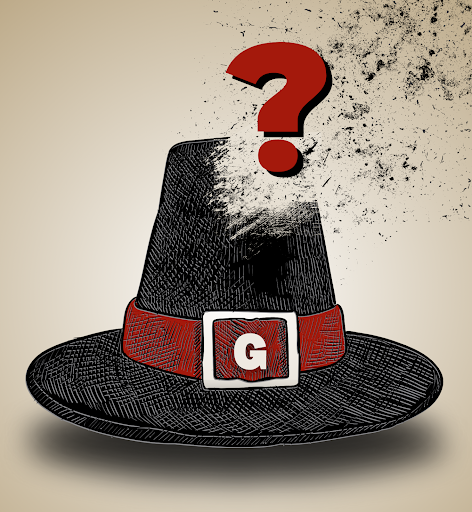On Friday, Feb. 10, Todd Drake’s “Bahraini Muslim Self Portraits” in the Hege Library Art Gallery will act as a backdrop for “Poetic Portraits of a Revolution,” a theatrical multimedia performance incorporating spoken word, video and photography.
Co-sponsored by the Center for Principled Problem Solving and the American Friends Service Committee, “Poetic Portraits of a Revolution” continues the Guilford College Muslim diversity series kicked off by Drake’s “Muslim Self Portraits.”
For “Poetic Portraits of a Revolution,” three North Carolina college graduates and one current student were sent overseas by Empowerment Project, according to art gallery curator Terry Hammond. Spoken word poets and youth educators Will McInerney and Kane Smego traveled to Egypt and Tunisia along with project translator and interpreter Mohammad Moussa and professional photographer and videographer Sameer Abdel-Khalek.
The “Poetic Portraits of a Revolution” group talked to Egyptians and Tunisians, shot video and captured images of day-to-day life inside the conflicts in each country. The artists then processed their experiences into poetic depictions of the conditions they found.
“Revolutions are so often simplified and romanticized into merely political events,” said McInerney in an online interview. “But we forget about the patchwork quilt of human stories that bring these movements to life. This project seeks to use art as a vehicle for understanding these powerful and emotive stories and to help inspire transformation in our own communities back home.”
“Poetic Portraits of a Revolution” has been nationally recognized on such programs as NPR’s “Morning Edition” and is currently in development as a live theatre performance, a photographic and poetry installation, a book publication and a film production. “Poetic Portraits of a Revolution” utilizes art and firsthand accounts to highlight the human experience behind these powerful human rights movements.
“The privileges and rights we have are something we cannot take for granted,” Abdel-Khalek said in an email interview. “We need to help others achieve that self-determination and their struggles overseas because it is what connects us as humans — we actually need to care about one another in a globalized way.”
“Poetic Portraits of a Revolution” takes the audience inside the conflicts of the Arab Spring to hear the stories and feel the emotions behind the popular movements in Egypt and Tunisia.
“We chose (the ‘Poetic Portraits of a Revolution’ performance) because Todd Drake … said they were amazing and that he was moved to tears when he saw them perform,” said Judy Harvey from the CPPS. “Their performance continues the example set by the Muslim Self Portrait Exhibits of letting people tell their own stories — who they are, what’s important to them and what big events like the Arab Spring mean in their lives.”




